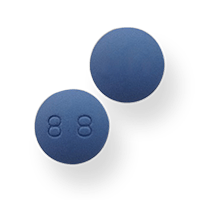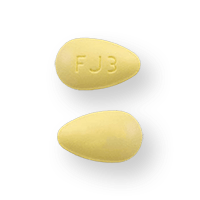ED can affect people of all ages. However, it is more likely to affect you as you grow older, especially at age 50 and above. Around one-third of male-identifying patients are affected at some point in their lives by ED. It most commonly affects white/caucasian patients.
Erectile Dysfunction

Erectile dysfunction (also known as ED) is a medical condition where it is difficult for the penis to get or keep an erection that is firm enough for sexual intercourse.
ED can be caused by a wide variety of issues, including other health conditions, alcohol, exhaustion, stress, mental health factors, medications, and poor blood flow to the penis.

People Affected
Risk Factors
There are a variety of risk factors for ED, including:
Other medical conditions (such as diabetes, heart conditions, sleep disorders, Parkinson’s disease, multiple sclerosis, kidney disease, hormone imbalances, Peyronie’s disease, anxiety, and depression)
Tobacco/smoking
Obesity/being overweight
Injuries (especially to the penis)
Medical treatments (such as prostate surgery or cancer radiation treatment)
Medications (such as those for allergies, mental health conditions, high blood pressure, pain, and prostate conditions)
Recreational drug/alcohol use
Signs & Symptoms
The main symptom of ED is difficulty getting or keeping an erection for sexual intercourse. The severity of that symptom can vary. It’s normal for anyone to occasionally have difficulty with erections.
While some people find ED embarrassing or difficult to talk about, it is important to speak with a healthcare professional if the condition persists, gets worse, or is generally interfering with your life. This is especially important because it might be a warning sign of a more serious condition such as coronary artery disease or diabetes. Beyond the physical symptom regarding erections, experiencing ED can also affect your mental health and your relationships.
Pharmacist Tip
If you can, take your medication on an empty stomach. However, if you find the drug causes stomach upset, you can also take it after a meal or light snack (just be sure to make sure the food isn’t fatty because that can affect the absorption of the medication). If an erection lasts longer than four hours, go to the emergency room. Lastly, if you didn’t feel like your medication worked well, try a different manufacturer. A Honeybee pharmacist would be happy to help you find the perfect manufacturer for you.
Medical Experts
Primary Care Physician: Your general doctor can diagnose and treat ED.
Urologist: Urologists specialize in the genitourinary tract, which includes the kidneys, the bladder, the adrenal glands, urethra, and male reproductive organs. They can help diagnose and treat ED.
Sex therapist: Sex therapists can help patients (and/or couples) manage psychological factors such as stress and anxiety, both of which can contribute to ED symptoms.
Diagnosis
ED is diagnosed through a variety of methods. Oftentimes, you can identify the problem yourself. When you see a healthcare professional, they may also perform:
Physical examinations: The doctor might examine your penis and testicles manually.
Blood tests: This is used to diagnose potential underlying conditions such as heart disease, diabetes, or low testosterone levels.
Urine tests: This can also be used to identify underlying conditions.
Ultrasound: This test, performed with a device that is moved over your penis and/or testicles, can identify blood flow problems.
Psychological exam: This can identify depression, anxiety, or other mental health conditions that might be an underlying factor.
Prescription Treatments
The two most popular prescription medications prescribed for ED are sildenafil (Viagra) or tadalafil (Cialis).
Not all generics are the same. Different people respond better to different versions of the same drug, depending on the manufacturer. You can search our website to find the best fit for you.
Lifestyle Remedies
There are many lifestyle changes that can help treat ED. Many patients notice reduced symptoms when they eat a healthy diet that replaces fats and sugars with fruit and vegetables. This is because a diet that supports heart health can also help increase blood flow to the penis. Exercising regularly, quitting smoking, and managing stress can also help as well.
There are also certain natural remedies that may help ED. These include Dehydroepiandrosterone (DHEA) hormone, ginseng, and L-arginine. However, make sure to speak with your doctor and/or pharmacist before starting any new supplements.

